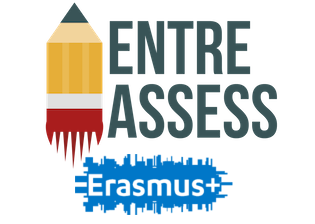 In short: IES El Batán is a public secondary/VET school located in Mieres (Asturias). Secondary and VET curricula both include entrepreneurship-related subjects. Project-based learning is an oft-used methodological approach in these subjects.
In short: IES El Batán is a public secondary/VET school located in Mieres (Asturias). Secondary and VET curricula both include entrepreneurship-related subjects. Project-based learning is an oft-used methodological approach in these subjects.
Age group: The assessment method described here was tested in a class of 15-17 year old students.
Initial challenges: In this school, the assessment of project-based learning was mainly summative, and the focus was on the assessment of project products/outputs. Thus, two essential aspects were neglected:
- The need for a more systematic formative assessment aligned with new and more complex competence development requirements as the student progresses through school years;
- The need to instil a habit of self-assessment and peer-assessment in students so that they realise assessment is a tool for self-improvement that needs to be applied on a regular basis.
What they did about it:
- Student teams worked with a rubric based on an existing developmental progression for collaborative problem solving. In this model, the collaborative problem-solving process was split into four phases: 1. Opportunity identification; 2. Idea generation; 3. Idea selection and development; and 4. Communication and Assessment. The language of the descriptors needed some adaptation.
- An additional rubric for teamwork was used to assess the collaborative dimension of the problem-solving process. A system of colour stickers enabled students to identify progress in a visual and quick way on a daily basis. These rubrics were also used for peer-assessment in key moments of the project.
Results: Students reacted very positively to the assessment method (model + rubrics + colour stickers). They appreciated the fact that assessment is not only based on the final product. They became familiar with self- and peer-assessment, overcoming initial reluctance to assess their peers.
Relevance for entrepreneurial teaching: The structure of the collaborative problem-solving process, and a small set of observable behaviours associated with each phase described in plain language, helps students to know and understand what is expected from them.
Applied assessment methods and tools: Rubrics, personal interviews, video-recorded pitches, final product and learning, observation check-lists, learning logs, peer-assessment sheets and teacher observation/log
Contact information: pazfdevera@hotmail.com
Website: https://www.iesbatan.es/


